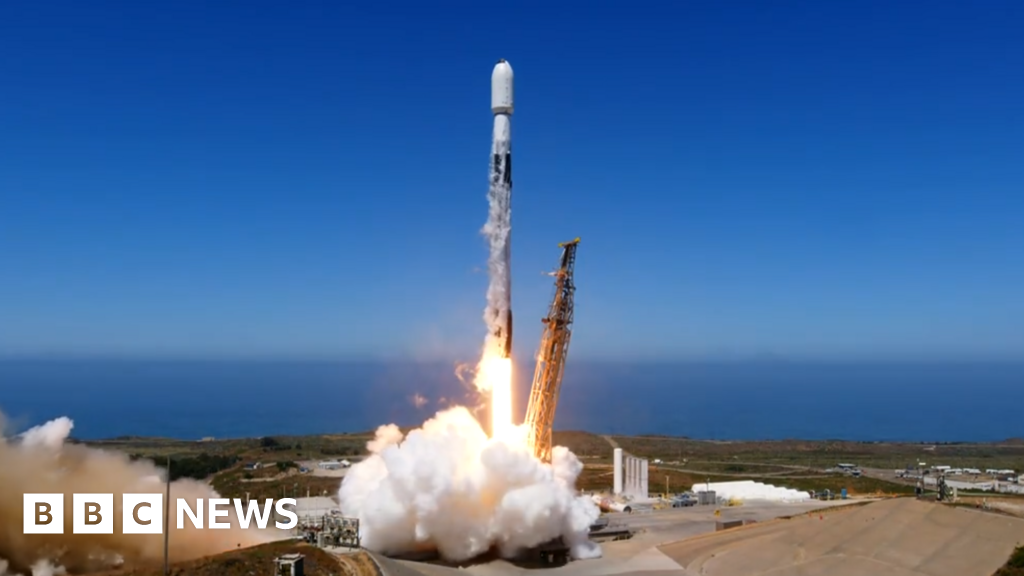SpaceX and the Dawn of African Space Exploration: A New Era for Senegal
On August 16, 2023, a significant milestone was achieved in the realm of space exploration as Senegal launched its first satellite, GaindeSAT-1A, aboard a SpaceX Falcon 9 rocket. This event not only marked Senegal’s entry into the space race but also symbolized a broader shift in the African continent’s approach to space technology and its potential applications. As the satellite detached from its mothership, it heralded a new chapter in technological sovereignty for Senegal and other African nations.
The Launch: A Historic Moment for Senegal
The launch of GaindeSAT-1A was part of a larger mission that saw 116 satellites deployed into orbit, primarily from Western nations. However, Senegal’s contribution stood out as a testament to the country’s growing capabilities in space technology. The CubeSat, designed for earth observation and telecommunications, is a significant step towards Senegal’s ambition of achieving technological independence. President Macky Sall hailed the launch as a pivotal moment for the nation, emphasizing the importance of controlling its own technological destiny.
The Changing Landscape of Space Launch Costs
The cost of launching satellites has dramatically decreased in recent years, making space more accessible to smaller nations. Kwaku Sumah, founder of Spacehubs Africa, notes that this reduction has opened the market, allowing countries like Senegal to participate in space exploration. To date, 17 African countries have successfully launched over 60 satellites, with Senegal joining the ranks alongside Djibouti and Zimbabwe, both of which have also launched their first satellites in the past year.
The Need for African Satellites
The importance of having indigenous satellites cannot be overstated. According to Sumah, having control over satellite technology allows African nations to access critical data for various applications, including agriculture, disaster management, and telecommunications. For instance, satellite data can help monitor crop health, predict extreme weather events, and improve connectivity in remote areas. As climate change poses increasing threats to the continent, the ability to harness space technology for local challenges becomes even more crucial.
Overcoming Perceptions and Challenges
Despite the advancements, space exploration in Africa is often perceived as an elite endeavor. Jessie Ndaba, co-founder of Astrofica Technologies, highlights the slow business growth in the space sector, suggesting that the focus should be on addressing pressing challenges such as climate change rather than pursuing ambitious space missions to the moon or Mars. The continent’s immediate needs, such as food security and resource management, should take precedence.
Sarah Kimani from the Kenyan Meteorological Department emphasizes the value of satellites in tracking dangerous weather conditions. With the help of earth observation data, her team has been able to monitor dust storms and improve early warning systems. However, she advocates for more African nations to develop their own meteorological satellites to better address local needs.
Dependency on Foreign Technology
Currently, many African countries with emerging space programs rely heavily on foreign technology and expertise. Temidayo Oniosun, managing director of Space in Africa, points out that while some nations have sent students abroad to gain knowledge, the lack of local facilities hampers progress upon their return. Senegal’s achievement with GaindeSAT-1A, built by local technicians in collaboration with a French university, showcases the potential for self-sufficiency in satellite development.
Geopolitical Implications of African Space Programs
The involvement of powerful nations such as the US, China, and European countries in African space programs raises concerns about geopolitical motives. While these partnerships have facilitated technological advancements, they also serve as diplomatic tools for influence. Oniosun expresses concern about the implications of foreign involvement, suggesting that African nations must navigate these relationships carefully to ensure their interests are prioritized.
The Future of African Space Exploration
Despite the challenges, the future of space exploration in Africa looks promising. With nearly 80 satellites currently in development, the continent is poised for increased activity in space. The potential for launching from equatorial regions, which require less fuel, could position African spaceports as vital players in the global space industry. The Luigi Broglio Space Center in Kenya, once a hub for launches, could be revitalized to support future missions.
Conclusion: A Bright Horizon for African Space Initiatives
The launch of GaindeSAT-1A is more than just a technological achievement for Senegal; it represents a collective aspiration for African nations to assert their presence in the global space arena. As the continent continues to develop its capabilities, the focus must remain on leveraging space technology to address local challenges, foster innovation, and build a sustainable future. With the right investments and collaborations, Africa can chart its own course in the cosmos, ensuring that the benefits of space exploration are felt by all its citizens.


